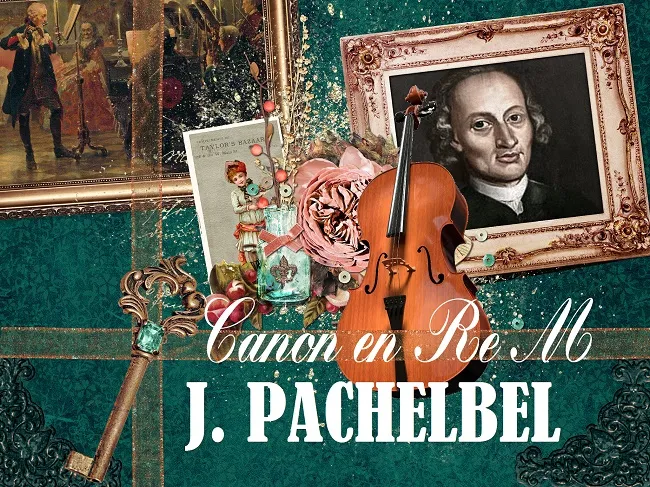Johann Pachelbel, músico alemán nacido el 1 de septiembre de 1623, es el autor de una de las piezas musicales más difundidas, el Canon en re mayor. Mi pasión por esa magistral creación ya la había expresado en un post anterior; ahora vuelvo a él, como en un recurso del ostinato barroco, a través de una especie de ficción brevísima, alimentada de datos de su vida pero con libertad creativa.
Johann Pachelbel, the German musician born on September 1, 1623, is the author of one of the most widespread pieces of music, the Canon in D major. My passion for that masterful creation I had already expressed in a previous post; now I return, as in a resource of the baroque ostinato, to him through a kind of very brief fiction, fed by data of his life but with creative freedom.

Mientras compone, resuenan en él esos “pensamientos musicales sobre la muerte”, variaciones para su fallecida esposa y su hijo. La ciudad de Erfurt ha sido tanto para él. No ha sido solo la experiencia próxima de la muerte, también haber podido desarrollar su carrera de organista, cumpliendo con los requerimientos de la iglesia, desde hacer mantenimiento a los órganos hasta componer los preludios para la misa. Lo ha hecho todo cumpliendo humildemente con su deber, para poder dedicarse a la música, lo único que lo anima.
También agradece haber podido mantener su amistad con la familia Bach; tanto el viejo Ambrosius como sus hijos, todos tan talentosos, especialmente ese niño, Johann Sebastian, que prestaba tanta atención a sus interpretaciones en casa de la familia.
Ahora, compone su Canon en re mayor, tocado por el dolor, pero también por la serena nostalgia y la celebración agradecida, como tres melodías semejantes que se contraponen y van entrelazándose en su vida, esa suerte de "bajo continuo" sobre el cual se armonizan las variaciones del alma.

While he composes, those "musical thoughts on death", variations for his deceased wife and son, resonate in him. The city of Erfurt has meant so much to him. It has not only been the near-death experience, but also being able to develop his career as an organist, fulfilling the requirements of the church, from servicing the organs to composing the preludes for the mass. He has done everything in humble fulfillment of his duty, in order to be able to dedicate himself to music, the only thing that motivates him.
He is also grateful to have been able to maintain his friendship with the Bach family; both old Ambrosius and his sons, all so talented, especially that child, Johann Sebastian, who paid so much attention to his interpretations in the family home.
Now, he composes his Canon in D major, touched by pain, but also by serene nostalgia and grateful celebration, like three similar melodies that oppose each other and intertwine in his life, that sort of "basso continuo" on which the variations of the soul are harmonized.
***
Una versión del Canon en re mayor en la ejecución instrumental, que permite, para los que no somos músicos, apreciarlo en su dinamismo contrapuntístico, llamativamente, por un grupo de cámara de Singapur.
A version of the Canon in D major in instrumental execution, which allows non-musicians to appreciate its contrapuntal dynamism, by a Singaporean chamber group, strikingly.

Referencias | References:
https://es.wikipedia.org/wiki/Johann_Pachelbel
https://en.wikipedia.org/wiki/Johann_Pachelbel
https://www.musicideasmolonas.com/2019/04/canon-en-re-mayor-de-pachelbel.html

Gracias por su atención. | Thank you for attention.
 ?
?



